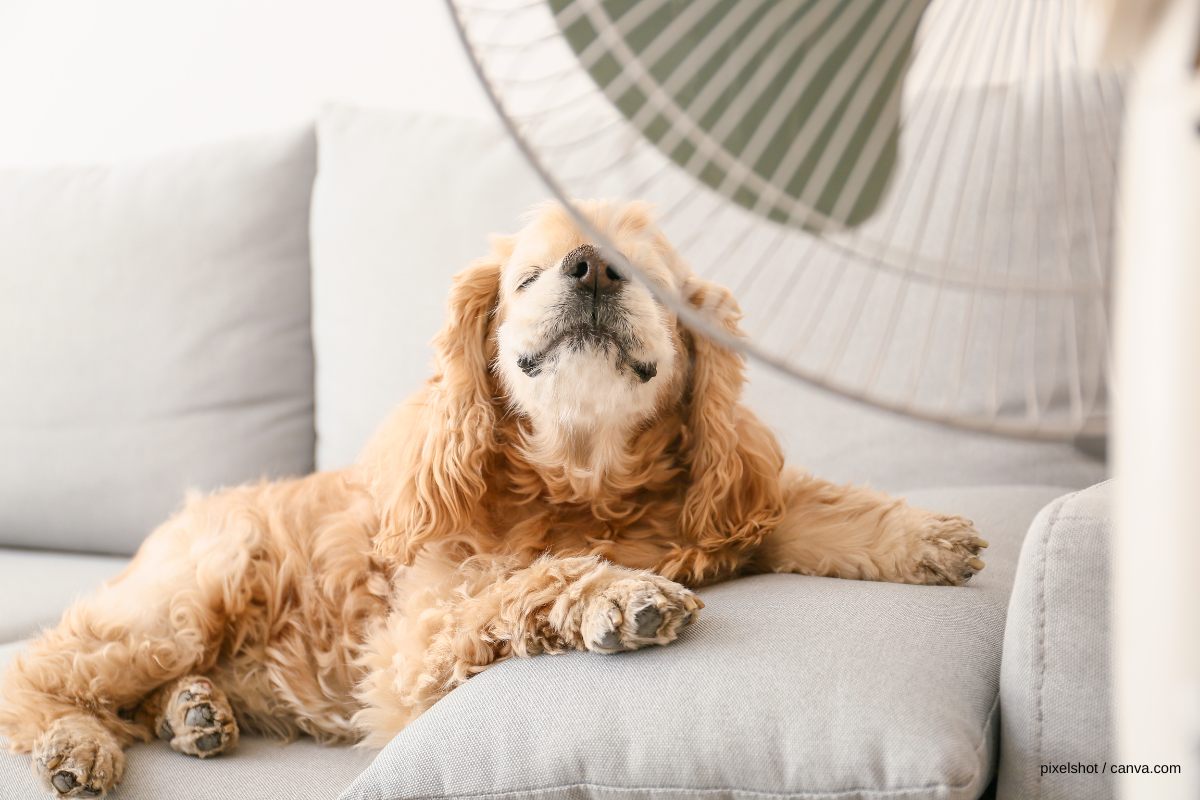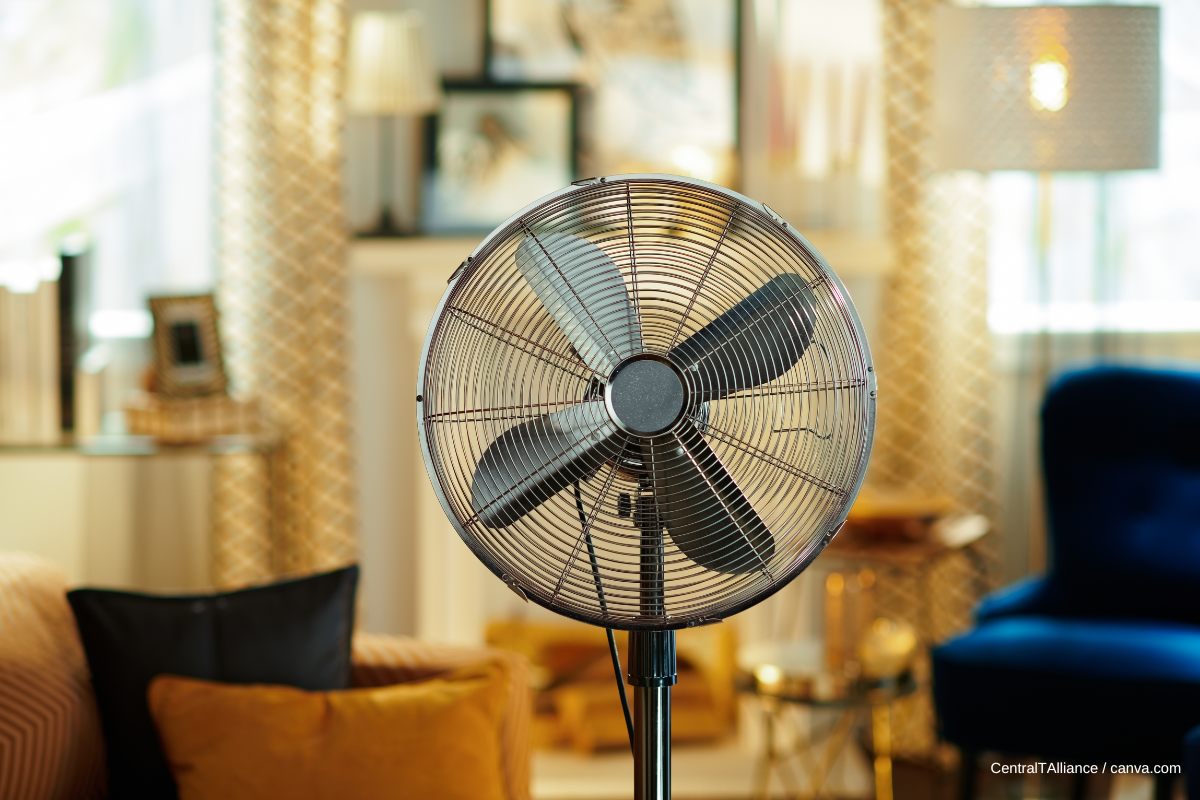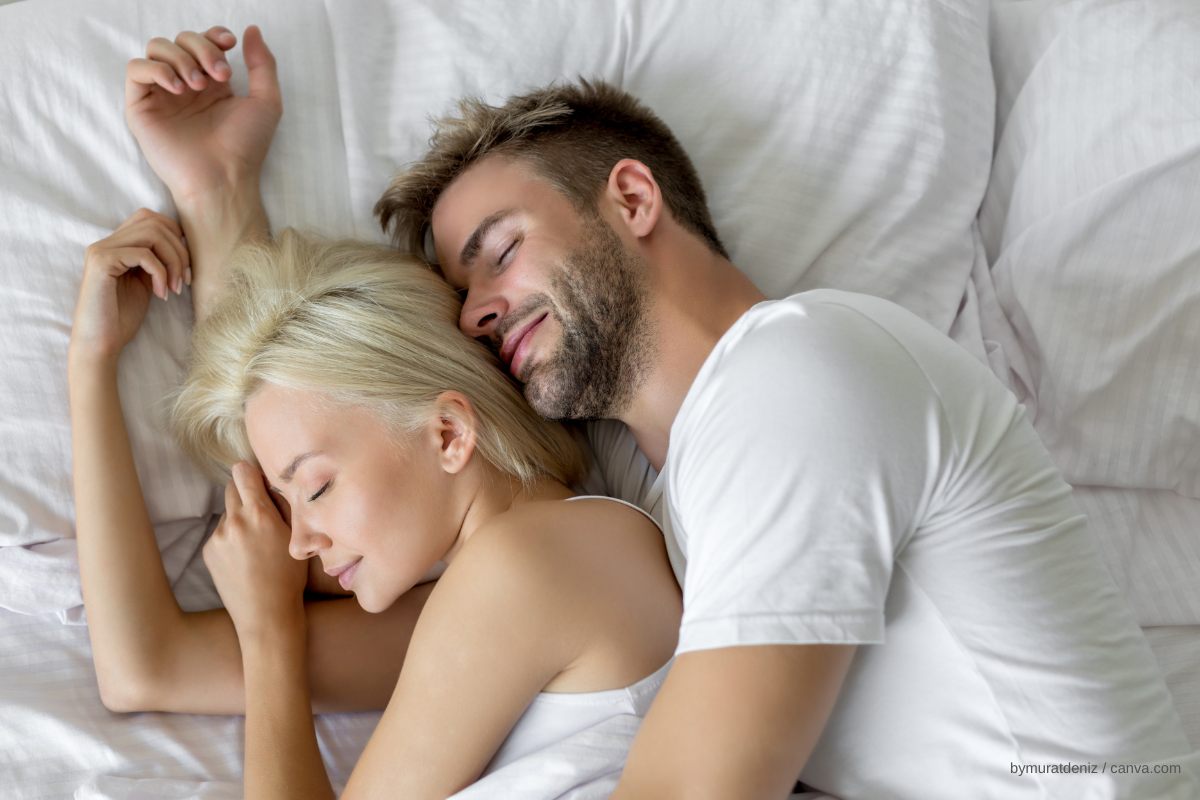Sleeping with a Fan - Pleasant Summer Nights or a Health Risk?

On hot summer nights, a cool breeze in the bedroom feels really nice. Many people want to cool down at night by sleeping with a fan. But does the fresh breeze really just provide the much-desired cooling, or does it end up posing a health risk? Find out what you need to bear in mind when you sleep with a fan running to avoid a cold or stiff neck and how to instead enjoy a healthy sleeping environment.
Cool air whilst sleeping in summer
Many people consider summer to be the best time of year, as the good weather invites us to take part in lots of exciting activities. But while we enjoy the sun's rays on our faces during the day, we sometimes have trouble falling asleep at night on hot days. The heat can put a strain on our circulation and make us sweat more. Even an open window often doesn't help to cool the bedroom temperature down to an acceptable range. Is there anyone who hasn't experienced the unpleasant feeling of your pyjamas sticking to your skin and tossing and turning from one side to the other without getting to sleep? To cool down in summer, many people turn to sleeping with a fan. The air flow is good for high temperatures, and it is often the only salvation on hot nights. But is it good for our health to sleep with the fan on? Or can it even be dangerous to leave the fan running all night?
Sleeping with a fan for a cool breeze
The hot, stuffy air in the bedroom can be a real nuisance in summer and prevent us from falling asleep quickly. The cool draft of a fan comes in handy here. Standing, tower, or ceiling fans have the advantage of being relatively inexpensive to buy. They can therefore also provide pleasantly cool nights for people who don't have air conditioning at home. While an expensive air conditioning system cools the air down, a fan creates better air circulation. This helps to maintain a cooler room temperature in the bedroom. When the fan creates a cool breeze at night, it is easier for us to relax. Leaving the fan running at night in summer can therefore help you to get a good night's sleep.

Disadvantages of a fan
As refreshing as the cool breeze feels, a fan in the bedroom comes with a few disadvantages.
- Danger of catching a cold: Using a fan can give you a summer cold. Especially if the fan is pointed at your face or body all night as it cools down the sensitive throat and pharynx area. Cooler mucous membranes mean better living conditions for viruses and bacteria, so you may wake up the next morning with a blocked nose.
- Potential for allergies: It's not just the air that is whirled up by a fan. Potential allergens such as animal hair, pollen, and dust particles may also be caught in the airflow. People with allergies therefore often notice a worsening of their symptoms when sleeping with a fan. Instead of waking up feeling well rested, they wake up with itchy eyes and a runny nose.
- Muscle tension: The constant draft can lead to muscle tension under certain circumstances. The longer the fan is pointed at the same part of the body, the greater the risk. And waking up in the morning with a stiff neck is not the best feeling.
- Loss of fluids: Because a fan blows the air past us, heat dissipation through the skin is facilitated. We sweat more easily, which can lead to a lack of fluids. So make sure you drink enough as soon as you get up in the morning. It's best to put a bottle of water directly on your bedside table or next to your bed.
Tips for sleeping with a fan without health consequences
Should you forgo a fan altogether so as not to jeopardize your well-being? The important thing is to use the fan correctly. By taking appropriate measures and adjusting the pedestal fan correctly, you can create a pleasant temperature and a healthy sleeping environment during the hot summer months.
- Do not point it directly at your face: If you want to fall asleep with a fan, it should never be pointed at your face or body the entire time.
- The right model: A ceiling fan is often gentler on the mucous membranes and muscles as it has low wind speeds. There are now also smart models with a timer function. This allows you to fall asleep to a cool breeze without having to leave the fan running overnight.
- Choose a low setting: Use the lowest setting to fall asleep. A lower setting is gentler, and you still get enough cold air. Plus, the lowest setting is quieter, making it easier for you to fall asleep.
- Enough distance from the bed: Make sure there is enough distance between your bed and the fan. It should be at least two to three meters.

Are there alternatives to a fan?
If you find it difficult to sleep in summer due to the heat but prefer to use alternatives, you have various options. With our tips against night sweats, you can fall asleep relaxed and carefree without fans or expensive air conditioning and be protected from both night-time heat as well as overcooling.
- Air properly: At the height of summer, you should keep the windows closed during the day when the temperatures outside are at their peak. To cool down the temperature in the bedroom, it is better to air the room once in the morning and once in the evening.
- Darken the bedroom: To prevent your bedroom from heating up, you should draw the curtains during the day and keep the blinds closed.
- Cooling pyjamas: When temperatures are high, some people prefer to sleep without pyjamas at all. However, the sweat is then absorbed by the mattress and cannot cool your body down. To reduce perspiration, you should opt for suitable pyjamas. Avoid synthetic fibers such as polyester, as they stick to your body and can leave you feeling sweaty. Natural fibers such as cotton, silk, or linen, on the other hand, have a pleasant cooling effect.
- A lukewarm shower before going to bed: If you want to sleep well in summer, you should try a lukewarm shower before going to bed. This relaxes your muscles and leaves you feeling pleasantly fresh. On the other hand, it is better to avoid cold showers as they stimulate the body and can prevent you from falling asleep.
- The right bed system: The right bed system can support good air circulation. To allow the air to circulate better, your mattress should have a core made of breathable and climate-regulating material. Mattresses made of open-cell gel foam, such as our Swissflex GELTEX® mattresses, are ideal for sleeping in hot weather as they promote a cool sleeping climate.
Photo credits:
pixelshot / canva.com
CentralTAlliance / canva.com
bymuratdeniz/ canva.com
